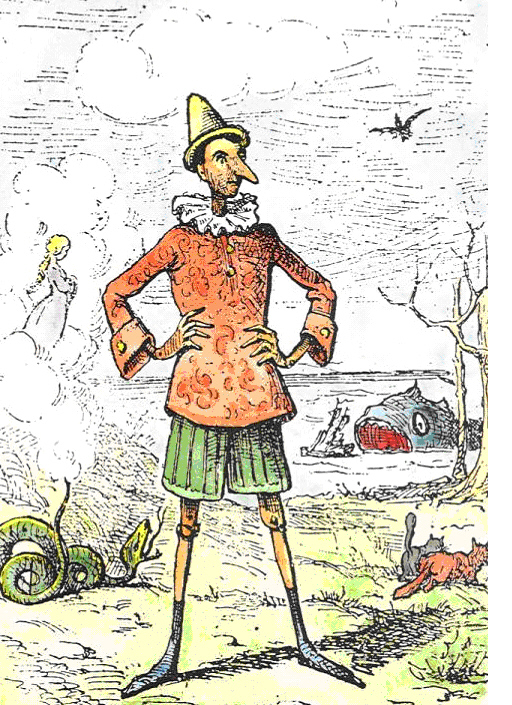Another interesting personal aspect of this film and its clear allusion to the story of Pinocchio is that by looking at Mark Wolynn's book:
See thread: Inherited Family Trauma: It Didn't Start with You
In one of the sections of the book the author states that you can find your core sentence thinking of a scene from a book, a movie or a play [...] For example, if a story that talks about lonely children, without their mother, resonates with you inside, what is the part of that story that moves you the most? That a mother has left her children? Or that the children have been left alone and have no one to take care of them?
Although this family story resonates with two people, one may be more affected by the fact that the mother has left her children, while the other may be more affected by the image of children who have no one to care for them. If we study the family system of the first person, perhaps his mother or grandmother, or even the person himself, left his children or gave up his children for adoption. The first person's family system may resonate with unrecognized guilt, while the second person's family system is permeated with the profound pain of a child who has been abandoned. The images in books, films and plays that carry an emotional burden for us can be like storms that stir up and bring down the delicate fruits that are hidden in the nooks and crannies of our family tree.
The Adventures of Pinocchio
As for the Adventures of Pinocchio by Collodi, it has something to do with some literary analysts that have described Pinocchio as an epic hero.
See thread: Inherited Family Trauma: It Didn't Start with You
In one of the sections of the book the author states that you can find your core sentence thinking of a scene from a book, a movie or a play [...] For example, if a story that talks about lonely children, without their mother, resonates with you inside, what is the part of that story that moves you the most? That a mother has left her children? Or that the children have been left alone and have no one to take care of them?
Although this family story resonates with two people, one may be more affected by the fact that the mother has left her children, while the other may be more affected by the image of children who have no one to care for them. If we study the family system of the first person, perhaps his mother or grandmother, or even the person himself, left his children or gave up his children for adoption. The first person's family system may resonate with unrecognized guilt, while the second person's family system is permeated with the profound pain of a child who has been abandoned. The images in books, films and plays that carry an emotional burden for us can be like storms that stir up and bring down the delicate fruits that are hidden in the nooks and crannies of our family tree.
The Adventures of Pinocchio
As for the Adventures of Pinocchio by Collodi, it has something to do with some literary analysts that have described Pinocchio as an epic hero.
According to Thomas J. Morrissey and Richard Wunderlich in Death and Rebirth in Pinocchio (1983) "such mythological events probably imitate the annual cycle of vegetative birth, death, and renascence, and they often serve as paradigms for the frequent symbolic deaths and rebirths encountered in literature. Two such symbolic renderings are most prominent: re-emergence from a journey to hell and rebirth through metamorphosis. Journeys to the underworld are a common feature of Western literary epics: Gilgamesh, Odysseus, Aeneas, and Dante all benefit from the knowledge and power they put on after such descents. Rebirth through metamorphosis, on the other hand, is a motif generally consigned to fantasy or speculative literature [...] These two figurative manifestations of the death-rebirth trope are rarely combined; however, Carlo Collodi's great fantasy-epic, The Adventures of Pinocchio, is a work in which a hero experiences symbolic death and rebirth through both infernal descent and metamorphosis. Pinocchio is truly a fantasy hero of epic proportions [...] Beneath the book's comic-fantasy texture—but not far beneath—lies a symbolic journey to the underworld, from which Pinocchio emerges whole.

The Adventures of Pinocchio - Wikipedia
en.wikipedia.org

